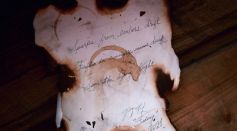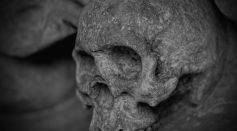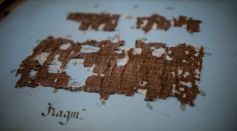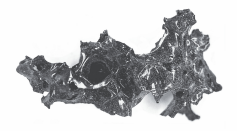Tags: Mount Vesuvius

Scientists Use Artificial Intelligence To Decipher 2,000-Year-Old Mystery From Herculaneum Manuscript Carbonized After Mount Vesuvius Eruption
Mount Vesuvius' Catastrophic Eruption Seemed To Preserve the Ancient Roman Cities of Pompeii and Herculaneum

Pompeii Skeletons Reveal That People Died Due to Earthquakes Before Devastating Eruption of Mount Vesuvius

$250K Prize To Be Given to Those Who Can Decipher the 2,000-Year-old Scrolls Charred in the Eruption of Mount Vesuvius

Genetic Heritage of Ancient Pompeii Victims Discovered Through Genome Sequencing

Image of Mount Vesuvius Volcano on Europe's Mainland Peaking Through the Clouds Appears on NASA Earth Observatory Site

Ornate Roman Chariot Near Pompeii Found: Ancient Equivalent of Lamborghini Still "Almost Intact"

Archaeology Dig Reveals 2,000 Year Old “Fast-Food” in Pompeii

Mount Vesuvius Victim's Brain Cells Perfectly Preserved in Glass Remnants
Roman Painting, Buried For Many Years Under The Volcanic Material, Reveals The Actual Sketch With Innovative X-ray Technology
Through Time and Stone--X-Rays Help Solve 2,000 year old mystery from Mt. Vesuvius
Most Popular

10 Powerful Brain-Boosting Foods Backed by Nutrition Science to Enhance Cognitive Function

If the Sun Were a Basketball, How Big Would the Earth Be? Space Scale Comparison Perfect for Kids

Top 10 Invasive Species List: Shocking Biodiversity Threats Ravaging Ecosystems Worldwide

7 Climate Change Animals Showing Incredible Species Adaptation and Thriving in a Warming World





